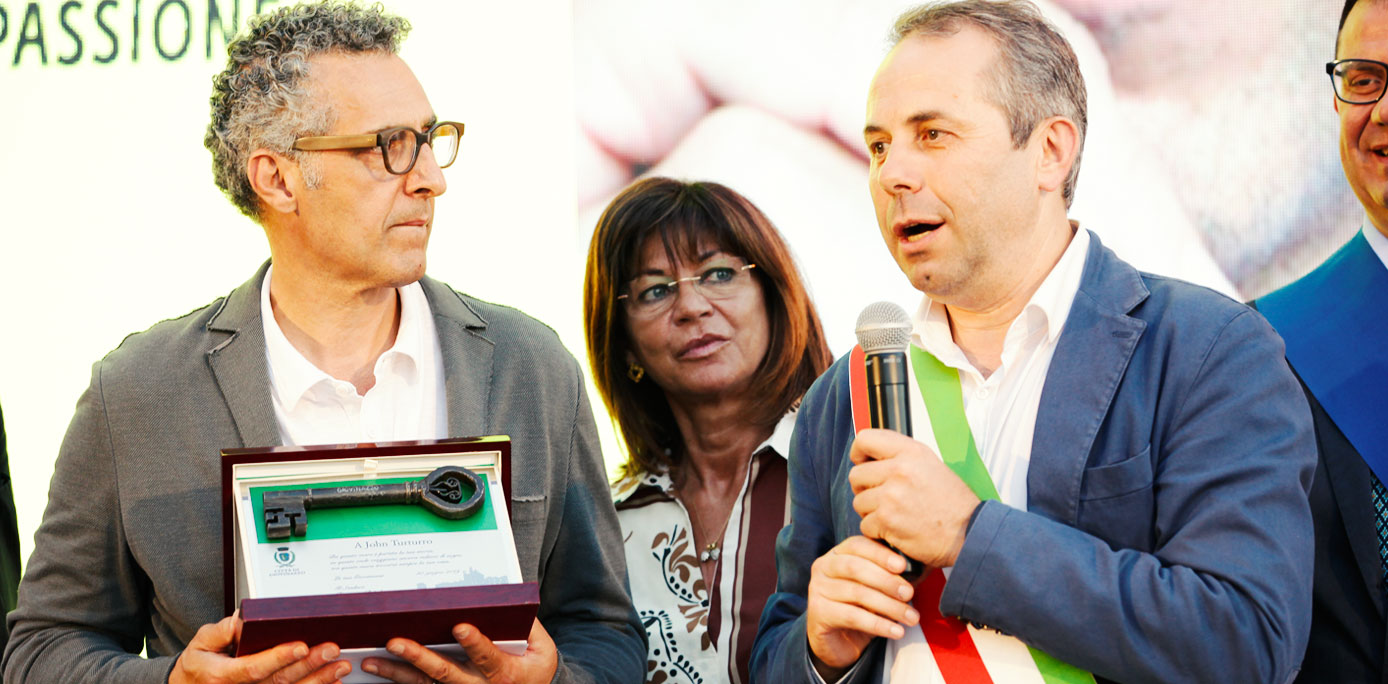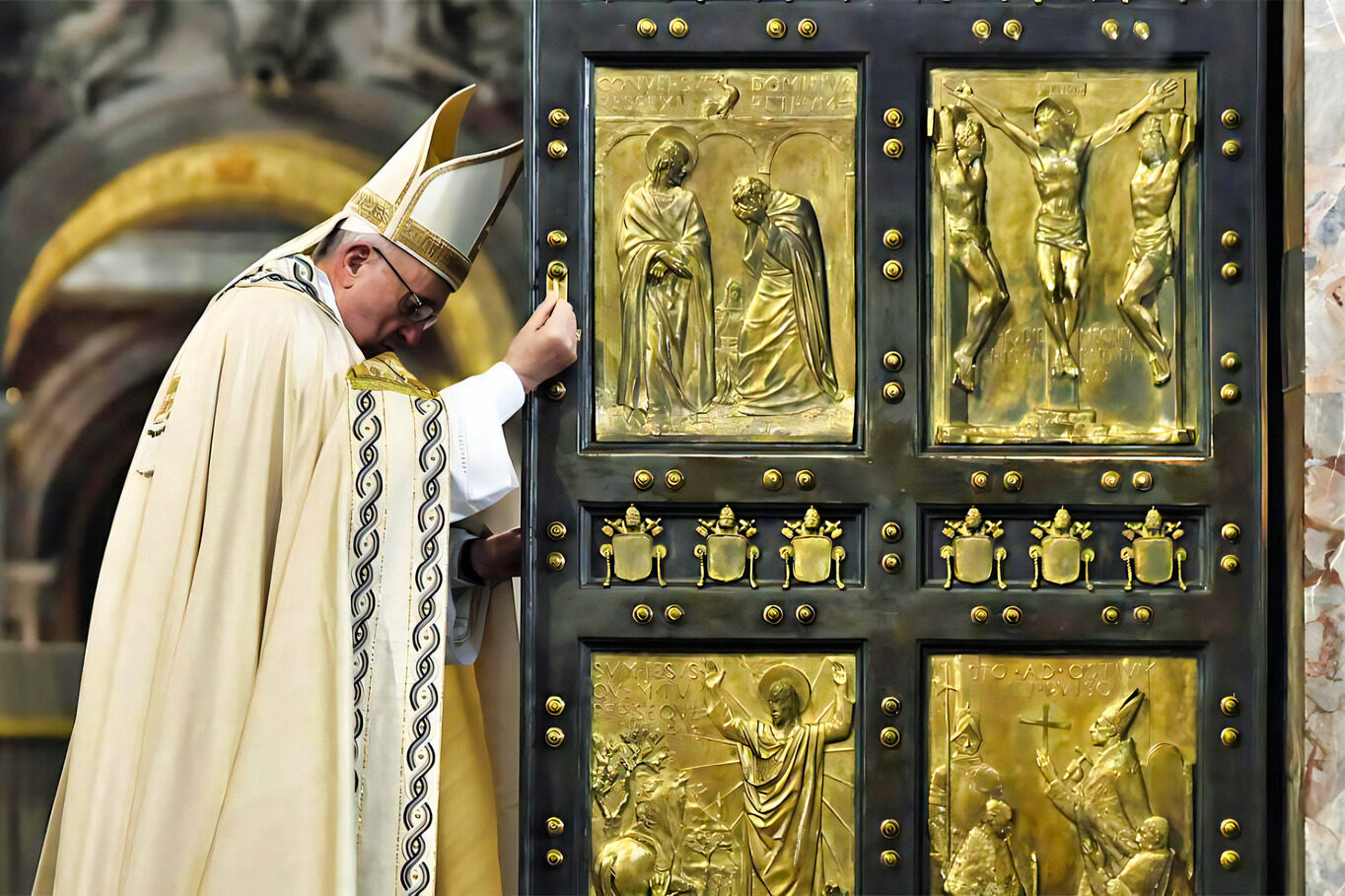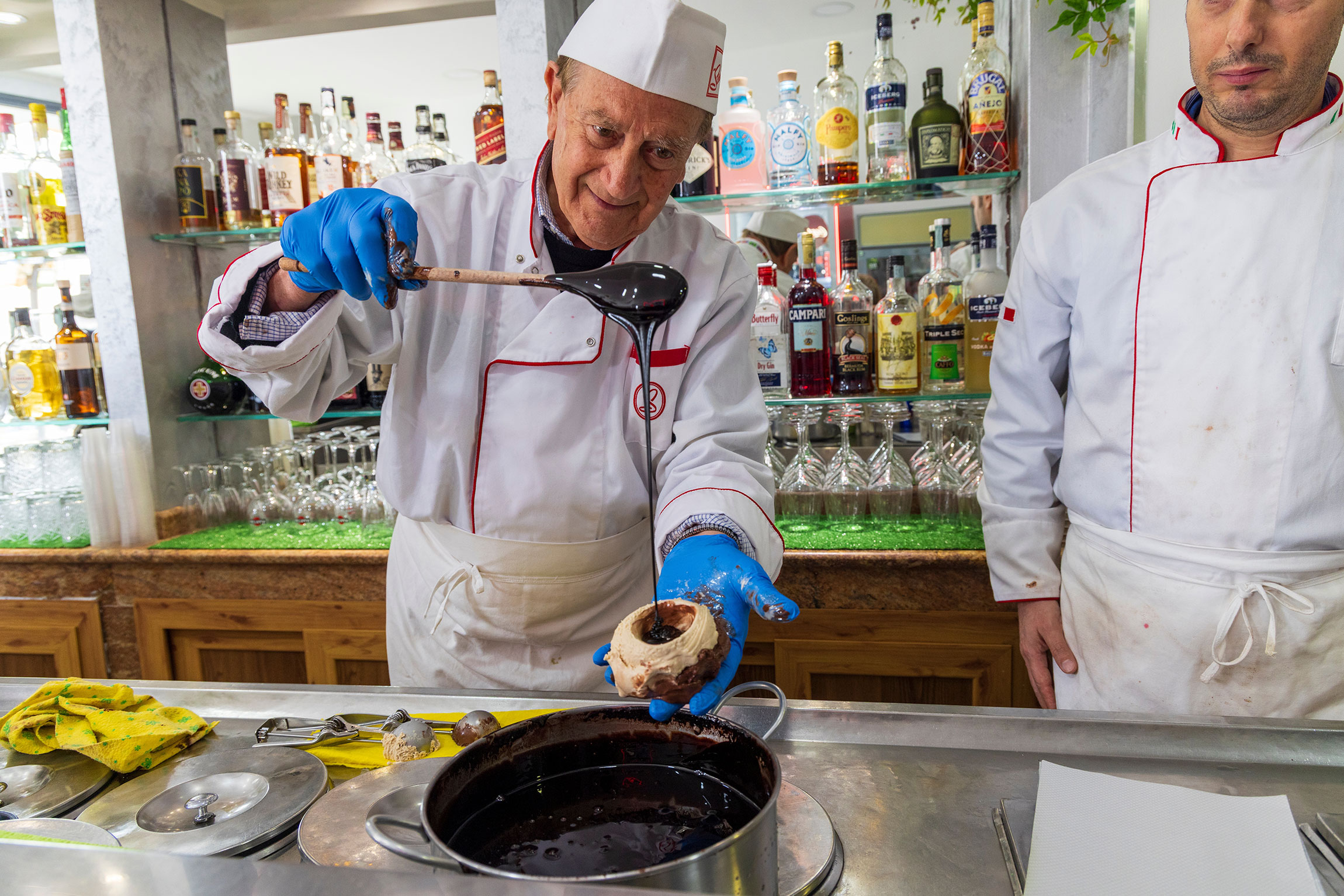“My grandfather had a dream: becoming successful in America. I am part of that dream, and I am part of Giovinazzo, where my father, my grandfather and my grandmother were born.”
These aren’t the words of any Italian-American, one that comes back to the motherland during the Summer to find a bit of him or herself and visit what is left of the family. They belong to Do the Right Thing’s Pino, The Big Lebowski’s Jesus (two minutes were enough to turn him into a legend in that movie), Exodus: Gods and Kings’ pharaoh Seti: these are the words of kaleidoscopic John Turturro, known for his funny and at time grotesque characterizations in more than 80 movies, but also for being a talented director, producer and screenwriter, the cinema and theatre actor adored by the Coen Brothers, Spike Lee, Woody Allen, Martin Scorsese, Francesco Rosi, William Friedkin, Ridley Scott, Ron Howard, Michael Cimino. He played along with Paul Newman in The Color of Money and Sophia Loren in the tv series The Fortunate Pilgrim. And then, he also worked with Jack Nicholson and Johnny Depp, Winona Ryder and Susan Sarandon, Julianne Moore, Tom Cruise, Robert De Niro, Willem Dafoe, Samuel L. Jackson, John Travolta and Denzel Washington, just to name a few.
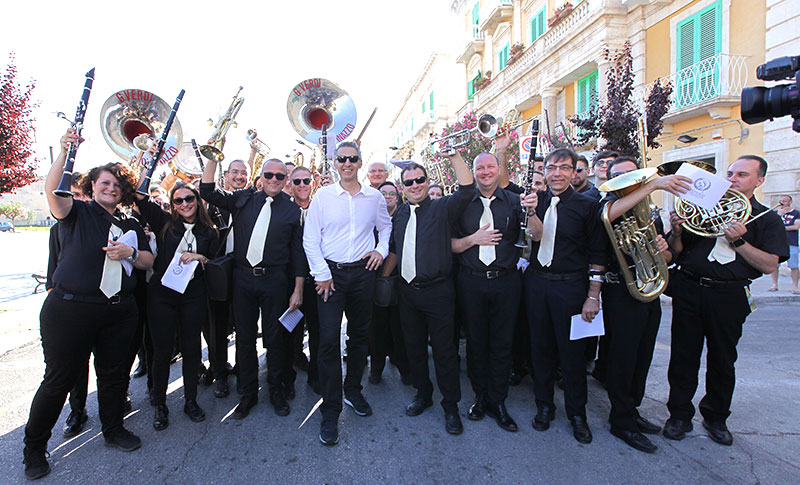
Turturro poses with Giovinazzo’s brass band © Depergola Fotografia-Ufficio Stampa Comune di Giovinazzo
In 1991, he won Best Actor at Cannes and the David di Donatello for Best Foreign Actor with Barton Fink. In 1994, thanks to his role in Robert Redford’s Quiz Show, he was nominated for Best Supporting Actor at the Golden Globes, the Chicago Film Festival, the Critics Association Awards and the Screen Actors Guild Awards. Here, too, we are only naming a few.
His Hollywood filmography speaks volumes about his talent. He began his career in theatre and, after having received a scholarship for the Yale School of Drama and having obtained an MA in Fine Arts, he debuted on the silver screen. It was 1980 and the movie was no other than Raging Bull, directed by Martin Scorsese and with Robert De Niro, the story of Italian-American boxer Jake LaMotta. A touch of Italianità marks his eclectic and prestigious career since the very beginning.
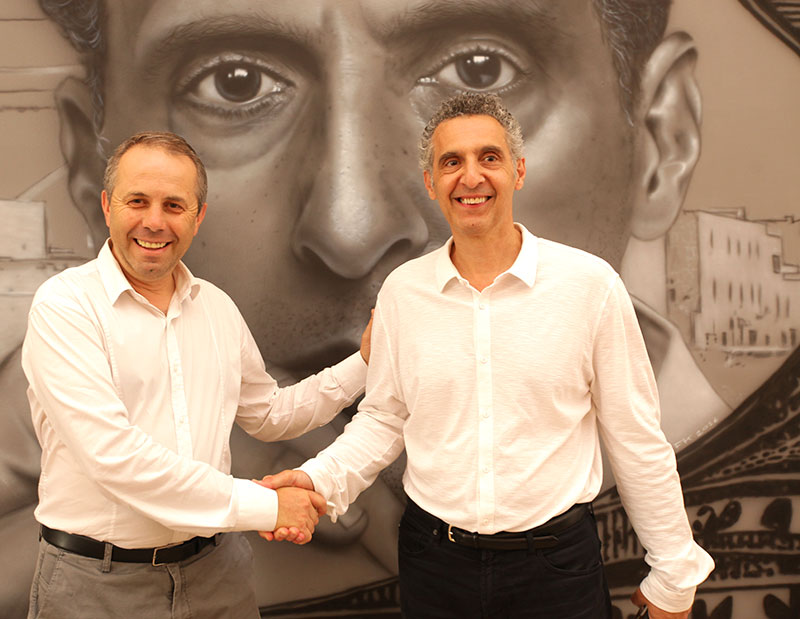
John Turturro and Mayor Depalma pose in front of a mural by Fabio Franchini © Depergola Fotografia-Comune di Giovinazzo Press Office
Turturro moves with ease from dramatic to comedic roles, from indie movies (Tom DiCillo, Noah Baumbach) to blockbusters (Transformers). He’s histrionic and chamaleonic. Sensitive and versatile, he’s known and admired for a style that brings together humor and melancholy.
But when he comes back to Italy, he simply feels like “a child of the South, half from Puglia and half from Sicilia:” that’s how he says.
His father Nicola (then Nicholas) left Giovinazzo (Bari) for New York at 6, to become a builder and carpenter. His mother, Caterina Incerella (then Katherine), was a jazz singer from Aragona, near Agrigento.
John was born in Brooklyn on the 28th of February 1957 and at 6, just like his father did all those years before, he moved to Queens with the rest of his family, and there he lived until he went to college at SUNY New Paltz where he got a degree in Theatre Arts, thanks to the sacrifices of a family that would blast Puccini all day long on the radio.
In spite of the influence New York had on him, Italian-American culture and his childhood were to characterize him as an individual, and inspired some of the movies he was to direct: Mac, which won the Caméra d’Or at Cannes in 1991, revolves around three Italian-American brothers who want to start a construction company in the new residential areas of New York in the 1950s, while Romance and Cigarettes (2005) evokes the anguished lives of a Queens’ working class family.
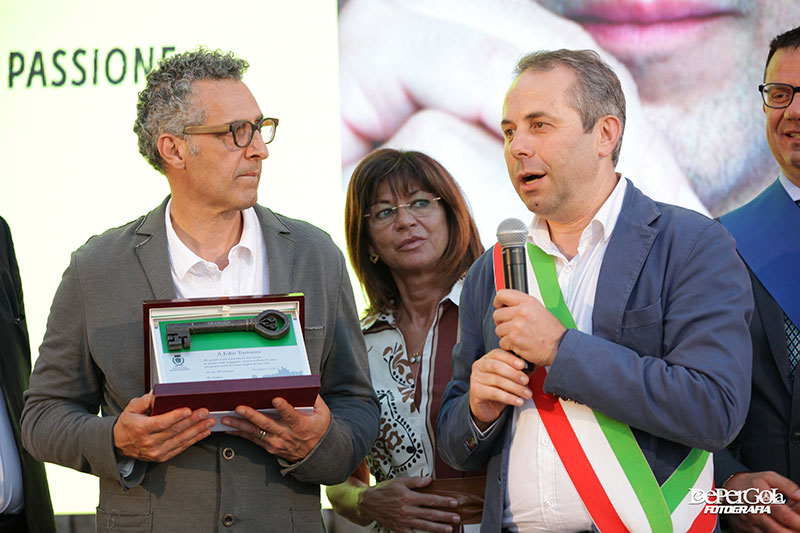
Did 1: John Turturro, left, receives the keys of Giovinazzo from the hands of mayor Tommaso Depalma © Depergola Fotografia-Ufficio Stampa Comune di Giovinazzo
Turturro is Italian-American by personal background and artistic choice. His parents never severed their ties with the motherland and he has a natural and cultural attraction for his own roots, which explains the origins of strong relationship eventually officialized in 2011, when he obtained the Italian Citizenship by direct ancestry. Turturro likes to strengthen this bond through several trips to the Belpaese, always out of the limelight, speaking a bit of Italian and working here.
In the 1990s, he developed a passion for Italian literature and then, in 2006, he interpreted and directed Questi Fantasmi, by Eduardo De Filippo, at the Teatro Mercadante in Naples. In 2008, he worked with Spike Lee in Miracle at St.Anna, a movie almost entirely filmed in Italy, just like 1997’s The Truce by Francesco Rosi, where he took up the difficult role of Primo Levi, for which he had to lose a great amount of weight to make his interpretation more realistic. In 2003, he also lent his voice to the characters of Opopomoz, a cartoon by Enzo D’Alò set in Naples.
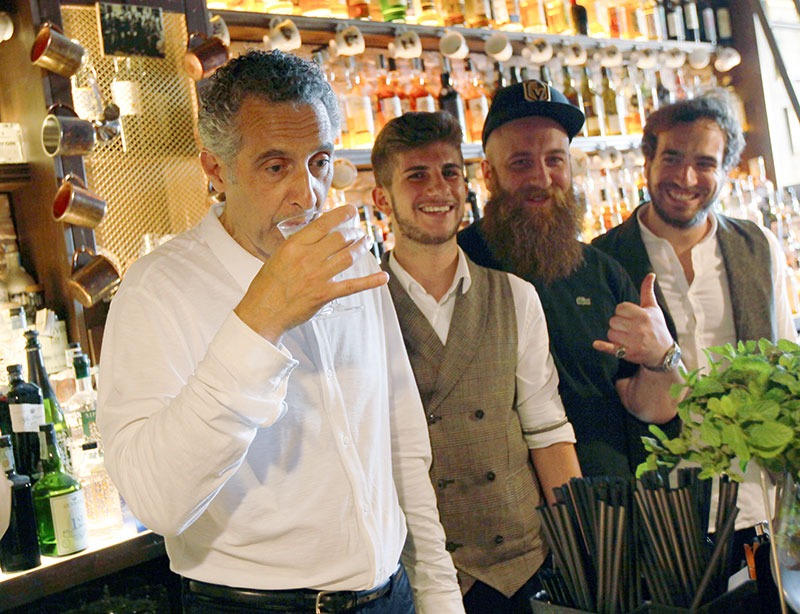
For the occasion, a special cocktail was created, inspired by the family history of Turturro © Depergola Fotografia-Comune di Giovinazzo Press Office
In 2009, he played in Italian Folktales, inspired by Italo Calvino and Giuseppe Pitré’s works. This journey to rediscover his Italianità continued with the documentary Rehearsal for a Sicilian Tragedy, a distant child’s declaration of love for the land of his ancestors, narrated by the intense voice of Sicilian author Andrea Camilleri — who recently passed away — and shot by Marco Pontecorvo. In 2010, he returned to Italy and to the Mostra Internazionale d’Arte Cinematografica di Venezia with his own documentary, Passione, dedicated to Naples — which he defines the place of the heart — and its music.
In 2018, he directed opera for the first time: he chose Verdi’s Rigoletto for the beauty of its music, the modernity of its themes, the wealth of contradictions in its plot. Turturro also took part in several Italian productions: in 2015, he was in Mia Madre, directed by Nanni Moretti and presented at Cannes. In the same year, he was in Marco Pontecorvo’s Partly Cloudy with Sunny Spells, set in the region of Marche. And it isn’t certainly a case he interpreted Guglielmo of Baskerville, the monk-detective protagonist of the tv series The Name of the Rose, inspired by Umberto Eco’s novel translated in 40 languages and with more than 50 million copies sold around the world.
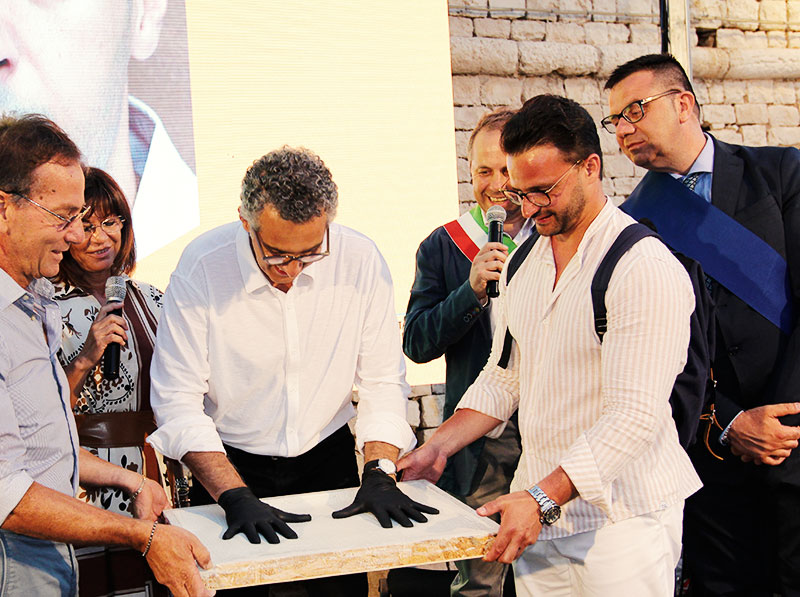
John Turturro became a honorary citizen of his father’s hometown of Giovinazzo this year © Depergola Fotografia-Ufficio Stampa Comune di Giovinazzo
“In Italy, I lived very important professional experiences. In Mac, the first film I directed, I told my father’s story: a builder, a very traditional man. My mother, on the other hand, was a jazz singer who performed in a big band with her brothers, but she wanted a family so she kept on singing only in church and at home. My father used to sing, too: he knew all Il Trovatore by heart. Both of them — Turturro explained in an interview a couple of years ago — left an indelible mark in me. When I directed the movie-documentary Sicilia, in 2008, I ended up knocking at the house where my grandparents used to live. Discovering my roots has been essential to understand who I really am.”
Since the 27th of December 2018, Turturro is a Commendatore dell’Ordine della Stella d’Italia. This came after obtaining his Italian passport and becoming a citizen of Aragona, the place his grandmother Rosa Terrasi left to move to New York, where she lived the rest of her life, always remaining, nevertheless, an Italian citizen. Last Summer, he was also awarded honorary citizenship of Giovinazzo, the small apulian village where his father was born and that he had visited for the first time in 1986, when he was in Italy to shoot with Sophia Loren The Fortunate Pilgrim, based on the novel by Italian-American writer Mario Puzo.
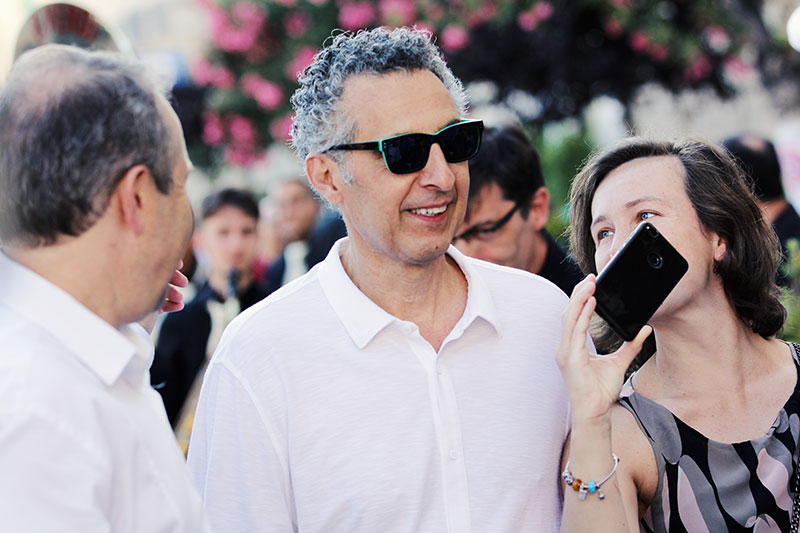
John Turturro spent time with locals and with his extended Italian family from Puglia © Depergola Fotografia-Ufficio Stampa Comune di Giovinazzo
And here we are, back at the beginning of our story.
A story where an immigrant’s son comes back home to show to his paesani his father, grandfather and grandmother’s success. A redemption from poverty, for people who offered every opportunity to their family. For people who truly realized their American dream.
But there are no clamor nor VIP behavior here. Wearing a white shirt and sunglasses, friendly and relaxed, Turturro really seemed a “man next door,” walking around his father’s village.
The brass band, the photos with all the relatives, the hugs, the meeting with the mayor and the parish priest, who gifted him with the birth certificate of his father, who had left in 1931 to reach New York wrapped in poverty and hope, his hand held by people who could only speak dialect, not even Italian, let alone English.

Turturro in Giovinazzo, the country of origin of his father © Depergola Fotografia-Press Office of the Municipality of Giovinazzo
It was an emotional day, with handshakes and smiles for everyone. Ceremonies were held in the Town Hall, and also by the sea because there wasn’t only an important actor in town, but a piece of Giovinazzo’s history in the world: the village’s most illustrious citizen had come home and it was like a Sunday spent at home with the family, like a walk on the prom, like a spontaneous and loving meeting.
“I am very happy to be here with my extended family.” All his 69 relatives sat in the village hall. His surname is common in Giovinazzo, dozens of families have it because, up to a few generations ago, it was normal to have 5 or 6 children. They gave him olive oil, books, an embroidered rose, a painted chocolate egg, a cocktail created especially for this occasion, made with olive oil extract, Sicilian lemons and a Brooklyn gin, an icon of the Madonna of Corsignano, venerated in the village. And to share a moment all together, he gathered all his relatives in the local gelateria.
Then, emotional and happy, he summed up the meaning of a ceremony whose only formal moment was that of making official a bond nurtured for years: “I know them all personally, and it’s an immense emotion.”
He had been here many times, always privately, to create and live an authentic, real relationship with the place and its people. This time, his wife Katherine Borowitz and his son Amedeo were with him, and they, too, enjoyed the embrace of the Turturro family. “They are fascinated by Italy,” he said, just like his other son, Diego, who remained at home. The three of them were photographed in front of a large graffiti of the actor, by artist Fabio Franchini.
Turturro received his honorary citizenship during a true village feast, because this was the atmosphere in Giovinazzo, a small seaside town, only about 15 km from Bari.
A little over 20 thousand people, a small limestone marina, walls running around an Aragonese tower that dominates a blue sea, dotted with fishermen’s boats, the cathedral of Santa Maria Assunta, in perfect Romanesque style, built in 1113, with baroque inserts, and a 12th century mosaic floor inside, a historic center filled with medieval towers, aristocratic residences and courtyards, staircases, terraces, balustrades and flowery balconies opening all unto Puglia’s largest square. Giovinazzo, divided between its rural past and its seafaring tradition, preserves a village-like dimension, where everyone knows each other and where Sunday means also the ritual walk in the square, the beating heart of the community.
An enchanting scenery, that may well find itself in a Hollywood movie: “maybe, maybe, maybe. È una possibilità,” Turturro said half in English and half in Italian. The idea of filming in Giovinazzo is appealing: in the end, the town is rich in history and architecture, and has a perfect Mediterranean skyline, “You need the right story for the right place but — he ensured — I’ve been thinking about it, and I have an idea.”
The Big Lebowski’s spin off, based on the character of Jesus Quintana, will come first. In an interview to the Independent, Turturro confirmed production, which started in 2016, is almost finished: “Fundamentally, it’s an exploration of Jesus after he comes out of prison. It’s a really human comedy.”
In the meanwhile, he left a piece of heart in Puglia where, he said, “I swam and ate a lot. I must have gained at least four pounds!” and where he felt truly touched while receiving the town’s keys: “within these walls — Giovanazzo’s mayor Tommaso Depalma said — you’ll always find your home.”
“This dream started 5 years ago, but — the mayor continued — he did promise me he would come, the only time we met, in 2014 in Rome. Having him here officially for the first time, it’s not only a dream coming true, but a true joy and a reason of pride for the town, because people like John are our ambassadors in the world and they represent those roots that keep us together in spite of the distance.”
